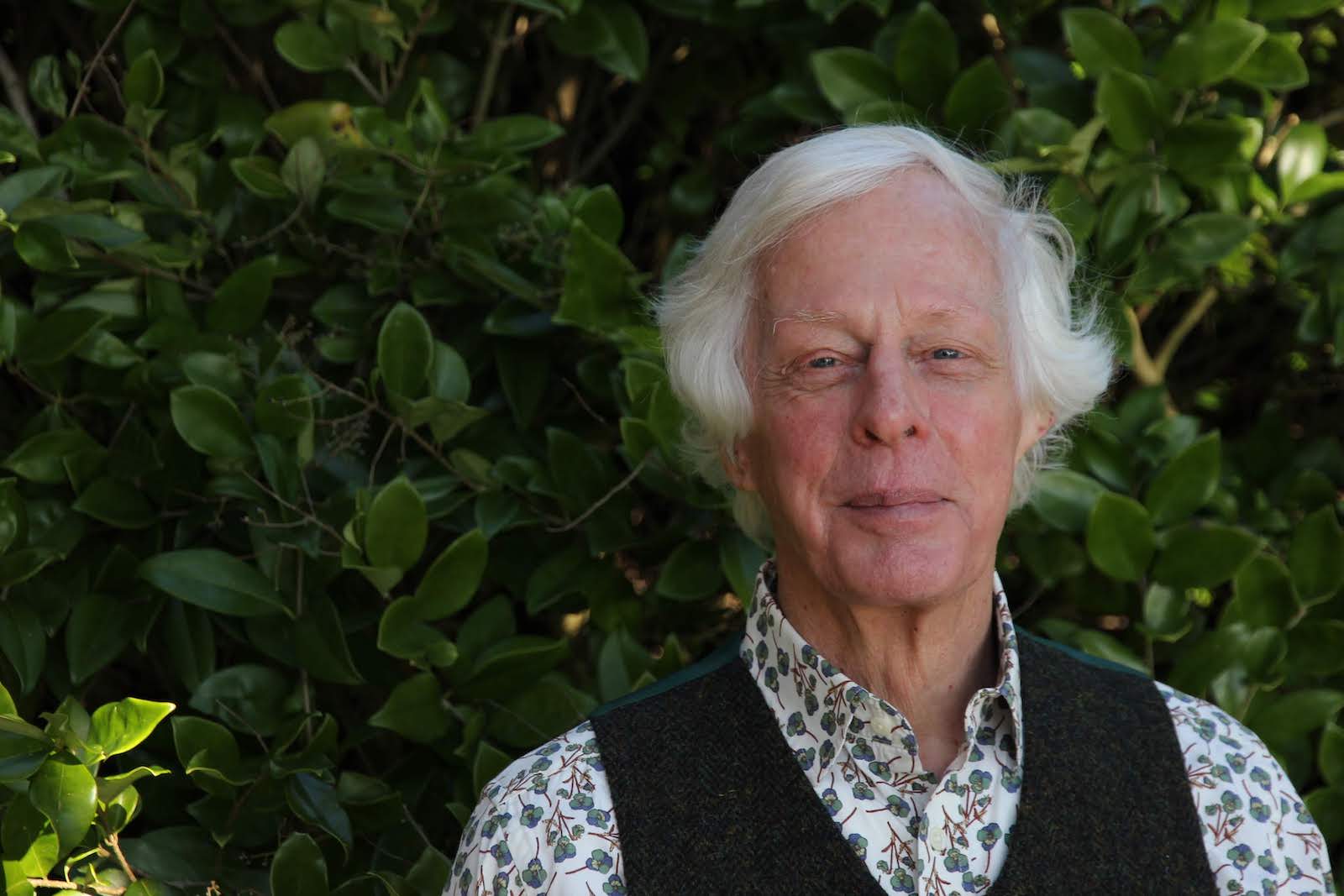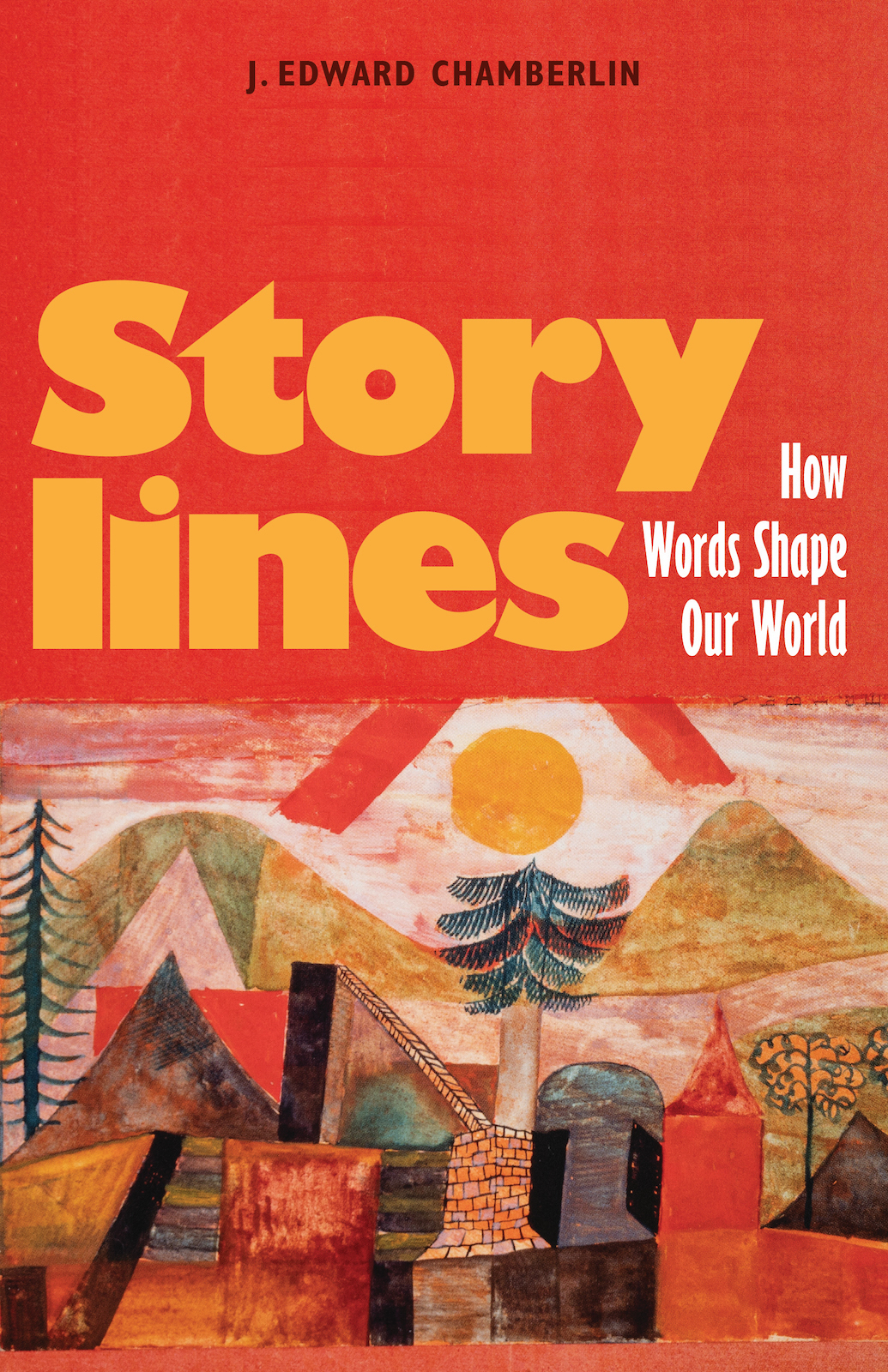J. Edward Chamberlin has long been fascinated by how storytelling shapes our experiences. Based in Halfmoon Bay, B.C., Chamberlin is a professor, author, and Officer of the Order of Canada. This story is excerpted from his new book, Storylines: How Words Shape Our World.
I had gone to the Kalahari Desert in the Northern Cape of South Africa in the mid-1990s to listen to San (Bushman) storytelling, and there I had the rare privilege of listening to many traditional storytellers from the ǂKhomani community, most of whom were quite old. They told their stories and sang their songs in their Indigenous language about the spiritual and material life of a desert homeland they had shared with springbok and gemsbok and lions and leopards and a variety of nutritional plants whose roots provided medicinal resources—a homeland they had shared, that is, until they were thrown out sixty years earlier to “make room” for a national park. They also told stories about ancestral spirits and imaginary creatures not part of the imaginative world of European and settler African storytelling, but as unsettling as anything by the brothers Grimm. The stories were always performed, since their language (from the Khoisan family) has five clicks and eight tones and at that time did not have a written form.
I was fortunate to have with me Levi Namaseb, a friend and colleague and distinguished southern African linguist from Namibia. His native language, Khoekhoe (one of eight that he speaks), is also part of the Khoisan family, and he had inherited from his mother, a legendary storyteller, a gift for both language and storytelling. We were welcomed by the ǂKhomani, and by some gift of grace we first met a family of elderly sisters—|Una Rooi, Kais Brau, |Abaka Koper—and their cousin Griet Bott, who had somehow kept together over the past sixty years and still spoke their language (now in the keeping of a few elderly speakers, but of increasing interest to the young). They told us stories and sang songs with the energy and enthusiasm of much younger storytellers, taking us home to the desert and to their families and away from their difficult lives in impoverished townships where tuberculosis and many other troubles were endemic. But their memories of their desert homeland were as fresh as yesterday’s events, and their spirits as sturdy and as full of mischief as the stories they told.
After spending a good deal of time with the sisters, we asked about other storytelling survivors from their community, which had been scattered throughout the Northern Cape. They immediately suggested an elder named Andries Olyn, whom they said was a wonderful storyteller. So Levi and I went to meet him.

Photo of J. Edward Chamberlin by Meg Chamberlin.
We arrived at his small farmstead one late afternoon and were received with courteous formality. After tea and cookies and cordial conversation, we asked if he would tell us some stories. He said, firmly, that he didn’t know any. We expressed our surprise and disappointment, but he was implacable. So Levi took up the challenge, and for the next ten minutes he encouraged Andries, flattering him with the comments of the other community elders that had sent us on this visit. He even gently mocked him. “A famous storyteller without any stories?” he asked mischievously. He tried everything, but to no avail.
Finally, with a storyteller’s sure instinct, he thanked him for his hospitality and said that as a gesture of gratitude, he would tell a story himself. Which he did. With stunning verbal pyrotechnics and spectacular hand and body impressions, Levi performed a cautionary tale about an ogre, full of scary suspense and surprises both dreadful and delightful.
As soon as Levi had finished, our host said “I’ve got a better one.” And Andries and Levi began telling stories, back and forth, for the next three hours until well after dark. Scheherazade couldn’t have done any better, and the lives of Andries and Levi didn’t even depend on it. But maybe they did.
“I’ve got a better one” is a storytelling challenge that has echoed throughout the ages in every culture in the world, and it’s probably where what we now think of as storytelling began.
Reprinted with permission from Storylines: How Words Shape Our World by J. Edward Chamberlin (Douglas & McIntyre, 2023).
Read more local arts stories.









